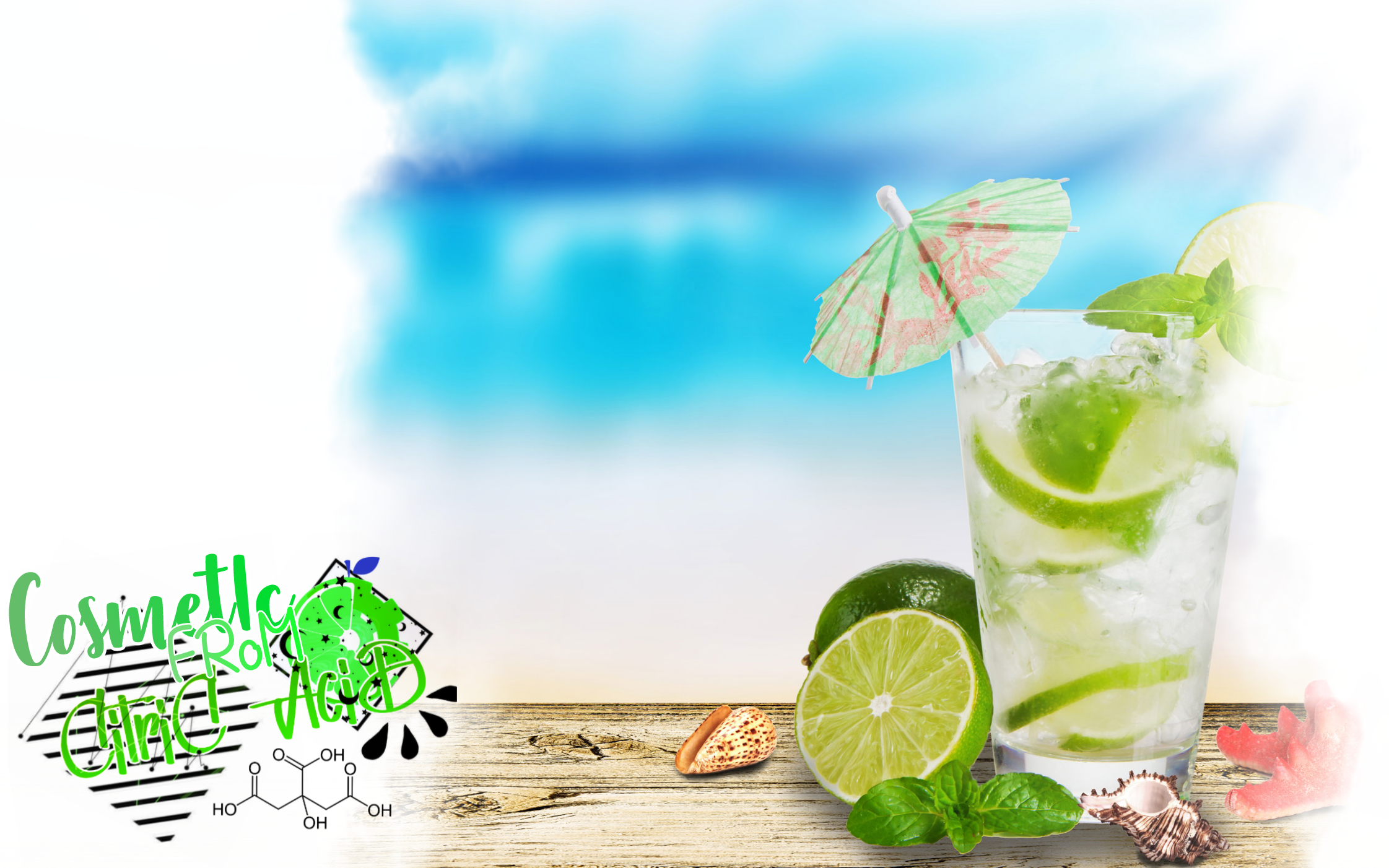





Products containing citric acid and some of its salts and esters can be safely formulated for specific application to baby skin or use near the eye area or on mucous membranes. In addition, they may be used in cosmetic sprays, including hair, deodorant, body and other propellant and pump spray products. Citric acid is also one of a group of ingredients known as alpha hydroxy acids that are used as the active ingredients in chemical skin peels. Sodium citrate may be used in all types of cosmetic products, including baby products, make-up, lipstick, bath products, soaps and detergents, hair dyes and colors, and hair and skin care products. Tributyl citrate and triethyl citrate may be used in bath products, other cleansing products, and creams and lotions.
Citric acid and its diammonium, potassium and sodium salts are all used to help preserve cosmetics and personal care products by chelating (complexing) metals. Citric acid and its salts are also added to cosmetics to help adjust the acid/base balance. Other functions of the citrate ingredients include: Buffering agent , Cosmetic astringent , Cosmetic biocide , Hair fixative , Oral care agent , Plasticizer , Skin-conditioning agent - emollient , Skin-conditioning agent - miscellaneous , Skin-conditioning agent - occlusive , and Solvent .
The citric acid ingredients most commonly used in cosmetics are citric acid, sodium citrate, tributyl citrate and triethyl citrate. According to the 2016 U.S. Food and Drug Administration’s (FDA) Voluntary Cosmetic Registration Program (VCRP), citric acid was used in almost every category of cosmetic product with over 10,000 reported uses. The next most commonly used citric acid-derived ingredients were sodium, tributyl and triethyl citrate.
Citric Acid is used in cosmetics and personal care products to adjust their ph balance. In addition, it can inhibits tyrosinase to even out the skin tone. It is also used to impart a lemon-like fragrance to a product.
Excessive exposure to Citric Acid can contact dermatitis in people with sensitive skin. In addition, Citric Acid, may increase photosensitivity, so products containing this ingredient should be used in conjunction with a sunscreen.
Being alkaline in nature, it has this direct effect of reducing the acidity in the body and in its capacity as an anti-oxidant, it chelates with calcium to remove the excess calcium from the body.
However, the experts caution that citric acid supplements should always be consumed only after a consultation with the doctor. 1. Citric acid finds many household uses and is a common ingredient in many products and has been used for skin treatments for generations. It is proven to have amazing benefits for improving the texture of skin and lightening its tone. Because of citric acid, juices of citrus fruits are acidic in nature and acquire bleaching characteristics, which help in restricting its melanin production. Melanin is responsible for blemishes, so reducing its production would naturally reduce blemishes.
2. Additionally, this acid is a type of alpha-hydroxy acid (AHA), which exfoliates the skin and as a result of which it removes dead skin cells in the pores of skin. Getting rid of dead cells opens the pores of your skin, thus making way for the penetration of skincare products. Try Holistic Apothecary Organics Triple AHA Cream.
3. Another benefit of citric acid is that it helps loosen the damaged layers of skin. As a result, healthier, younger skin underneath the spoiled skin, comes to the top, giving you fairer skin and an effervescent complexion. Antioxidants in this acid help repair skin, and fortify blood vessels. That’s why it is frequently used in facial creams and lotions. Shampoos also contain small quantities of citric acid as it can sliver minerals from water. However, an excess of this acid could remove essential minerals from hair and may even leave it slightly bleached.
4. Citric acid is frequently used in the cosmetic industry for manufacturing personal-care products. Its lemon like fragrance is another helpful feature that encourages its use in this industry.
Basically, it is used as a preservative and for balancing pH value. Usually, cosmetic products like body wash, shampoos, hand soaps, facial cleansers and nail polish, contain small volumes of citric acid. It’s also known to cause mild irritations of the skin in some people. An interesting characteristic of this acid is that, on reacting with baking powder or sodium bicarbonate; it releases carbon dioxide and thus produces bubbles or “bath bombs,’ as you may know. Many people like to use bath bombs due to the antioxidant properties of citric acid.
5. It is also a rich source of vitamin C, which is known for its anti-aging properties. While protecting antioxidants, vitamin C enhances the production of collagen.